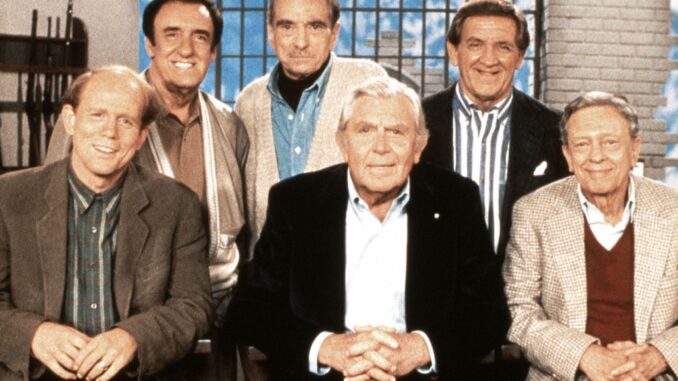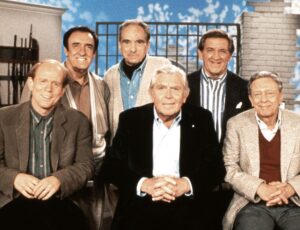
Few shows are as beloved as The Andy Griffith Show. The heartwarming classic was a steady hit for CBS. In its entire run, it never placed lower than seventh place in the ratings; it even ended its final season in the number one spot. Although it was a favorite for television viewers back in the day, the sitcom still continues to earn new fans with syndicated reruns airing on cable channels like TVLand and streaming on Paramount+. Through these avenues, the series gets to live on as new generations discover the magic of the fictional town of Mayberry.
The Danny Thomas Show served as a jumping off point for The Andy Griffith Show. The character of Sheriff Andy Taylor (Andy Griffith) was introduced to television viewers when he arrests Thomas for running a stop sign in a February 1960 episode of Thomas’ show. The spinoff debuted in October of that same year, and in over 249 episodes (159 in black and white and 90 in color for Seasons 6-8), audiences fell in love with the wholesome characters of Andy and his family.

Each episode sees the honest, ethical, and all-around good guy raising his son, Opie (Ron Howard), with the help of his Aunt Bee (Frances Bavier) and his inept but lovable cousin, Deputy Barney Fife (Don Knotts). The community of Mayberry provides plenty of challenges for Andy, but every situation is met with common-sense problem-solving and a compassionate approach to dealing with everyone in the community. When people think back to a simpler, less stressful time in American history, the world of The Andy Griffith Show comes to mind. But one element of the series was actually going to be much different when the show was first conceived.
In the days of classic television in the 1950s, most children were portrayed in one defined way. In shows such as Leave It To Beaver, Dennis the Menace, and The Danny Thomas Show itself, kids were precocious and often leaned heavily into their bratty sides. These rascals were constantly getting into mischief, popping onscreen to say something snarky to their parents or to complain about whatever predicament they had placed themselves in. Generally, they were suffering from Annoying Kid Syndrome. A very specific type of child was depicted onscreen, andthese actors were also often typecast into roles where they showed off their wisecracking ways. Although this type created some memorable characters (including Beaver Cleaver and Eddie Haskell), they weren’t exactly endearing to their parents or to the audiences watching them.
